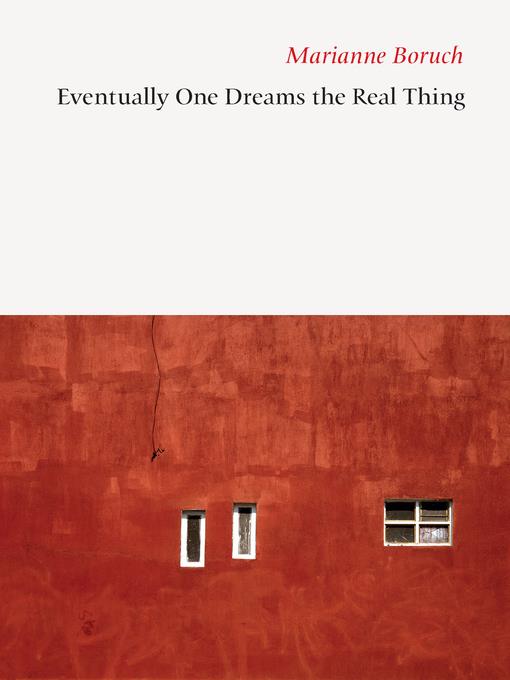
Eventually One Dreams the Real Thing
فرمت کتاب
ebook
تاریخ انتشار
2016
نویسنده
Marianne Boruchناشر
Copper Canyon Pressشابک
9781619321649
کتاب های مرتبط
- اطلاعات
- نقد و بررسی
- دیدگاه کاربران
نقد و بررسی

June 20, 2016
In her meditative new collection, Boruch (Cadaver, Speak) writes at once with and against the cascade of information and fevered, restless attention that mark contemporary daily life. These poems move with an ease and dexterity among current events, etymology, the environment, architecture, memories, and family histories. Boruch’s patient, quiet consideration of each of her many interests anchors the collection, and the persistence of the thinking, observing mind is the counterpoint and antidote to “all that cheering and static across mountains and cities/ and wires and rivers unto ocean and airspace and star-studded orbits.” The excess by which she’s “pelted every day/ by factoids. Word unto word unto word” does not dull the act of creation: “Wow. To make anything at all, be it/ moonlight or a shrug.” With the flaneur’s relaxed wisdom, Boruch places the exceptional within the mundane and the intimate within the universal, and above all highlights the present moment without ever losing sight of a broader context in which now is just one moment among many: “Because it’s ancient: there is/ no progress, only a deepening. Or not even that.” Readers are invited to think carefully through the world they’ve inherited, with Boruch’s discerning eye and conversational voice as a guide.

Starred review from June 15, 2016
Only a poet as accomplished as Boruch (Cadaver, Speak) could make such beautiful verse while leading us through the everyday, of life's subtle, steady shiftings ("the bird's hunger, seeking shape"). If the opening image of a pool filled with cruelly dredged up roses bespeaks quiet assent ("I stood before them the way an animal/ accepts sun"), the next poem turns immediately to progress (and hence progression) as a modern invention beyond the heaven-and-hell alternatives; finally, the poet concedes, "I lose track of my transitions." In fact, transition defines us. Here, a static painting gives way to "between and among," a simple typeface never yields a perfect copy, and even in a medieval score, two exquisite quavers are connected by a slur. VERDICT Highly recommended.
Copyright 2016 Library Journal, LLC Used with permission.

Starred review from August 1, 2016
In her ninth collection, Boruch (Cadaver, Speak, 2014) has crafted a memento mori of sorts, musing long on ideas of memory, history, and mortality. Sometimes droll and direct, other times austere and elegant, these poems look wryly down the barrel of human nature, quietly accepting what they find. Boruch is endlessly aware of the dead, visiting graveyards and funeral homes, but her acknowledgment of mortality refuses to be paired with fear When does grief become wonder? she asks in Divide, in which she gazes wonderingly at how even animals mourn. Later, in the third of four aubades, she visits a time when windows and mirrors were covered after a death: The house freed up then, broken off from the dead. / For the living. Duh. The living room now / though the dead lived there once. / Oh the dead live everywhere. Boruch is always aware of her predecessors, focusing intently on the details of their legacies, offering a quintet to Dickinson and evocative appearances by Dante, while Before and Every After bears a striking resemblance to Seamus Heaney's District and Circle, an eerie descent into an underworld. Always that / sense of the dead overhearing, with ghosts of all eras lingering here, creating a collection that, irony of ironies, haunts itself.(Reprinted with permission of Booklist, copyright 2016, American Library Association.)

























دیدگاه کاربران